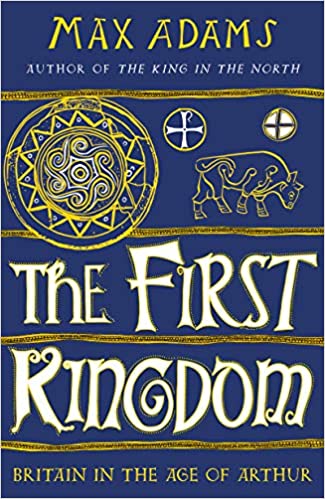I often wonder about the applicability of the Escondido Framework model of the firm to organisations in other cultures and at other times to the developed world in the 21st century . One of the claims of the Escondido Framework is the degree to which it can be applied universally. Certainly, the model can be applied to public sector and third sector organisations, and can be applied wherever there is some sort of corporate collective structure that can be shown to create value that is greater than the sum of the efforts of the people who are working together within the structure if they were together in a set of discrete collaborations brought about by a set of separate agreements (whether explicit or implicit).
I have just completed reading Max Adams’ account of Britain in the 5th to 7th centuries, The First Kingdom[1]. This covers the period often known as the Dark Ages, following the departure of the Roman Empire and before settled control of England by Anglo-Saxon rulers in the Heptarchy. He pieces together the considerable research undertaken in recent years to describe a fragmentation of society, depopulation of most cities and towns and replacement by what may in many respects to a pre-Roman pattern of village economies and local tribal leadership, subject to incursions by Viking and north German raiding parties, but still with some loose links to continental Europe, with the Christianity that had arrived in the Roman period hanging on in places prior to reintroduction both from Ireland with Colme Cille (St Columba) and with St Augustine from Rome, and with continuing trade.
One of the key themes of the Escondido Framework is the identity of the corporation independent of stakeholders, the “societé anonyme” whose ultimate purpose is to survive, and which outlives its “controlling mind”. Adams marks the end of the period that he is describing by an important transition, from one in which the individual “kingdoms” were pretty fluid, some very small and sitting within and subject to other kingdoms (in a system described as Tribal Hidage), and most regimes pretty ephemeral.
“Victory on the battlefield and political success measured in tribute and booty secured the loyalty of secular élites for their king and his eligible successors; but for a life interest only. Defeat, if not fatal, weakened a king and exposed him to internal coup of external domination…..The luck of the tribe was invested so heavily in the person of its kings that when they died any imperium that they may have exercised over rival kings was void.
“As Bede so vividly described it, the pagan supernatural experience was in some sense like the passing of a sparrow into and out of a hall whose warmth and fellowship matched their brief period of Earth while all before and after was cold darkness unknown…..
“Pagan kingship was not stupidly irrational. Rulers were bound by conventions of honour, reciprocity and political pragmatism. They calculated odds as coolly – and with about as much reliance on superstition – as any politician or football coach whose tenure might be equally precarious.”[2]
But this changes with a new social contract, between church and king, that reflects the new world being constructed with the arrival of Christianity and the conversion of the rulers, whose souls continue after death. Adams cites a law of Wihtred, king of Kent 690 -725: “The Church shall enjoy immunity from taxation; and the king shall be prayed for” before noting:
“The rapid seventh-century establishment of monastic communities across the Insular kingdoms, supported by extensive, formerly royal estates and nurture by their relations with kings, parallels the history of secular territorial lordship founder on the right to exact and collect renders from lands and communities, but with a a critical difference. The unique brilliance of this new social contract was to convert landed assets otherwise held for a mere life interest – the so-called folcland held by the thegns and gesiths form the king, which returned to the royal portfolio on their death – into a freehold bocland of abbots and abbesses. Bocland or bookland – what we would call freehold – was fundamental to a relationship meant to last for eternity on Earth and in heaven. It allowed the church to invest in physical labour and material wealth in permanent settlements free from the obligation of military service and taxation; to capitalize agriculture an technology. It laid the foundations for a literate, institutional clerical caste and formation concepts of obligations owed by kings to their people.”
Permanence is the key word – even if in due course the success of the monastic corporations became the seed of their undoing at the Reformation. The monastery or convent was greater than the abbot or abbess. The kingdom also secured more permanence, even if an institutional fluidity remained until the major kingdoms of the Heptarchy progressively consolidate and became on under Athelstan in the 10th century.
[1] Adams, Max (2021). The First Kingdom: Britain in the Age of Arthur. ISBN-13 : 978-1788543477
[2] Ibid. pp 398 -399.
